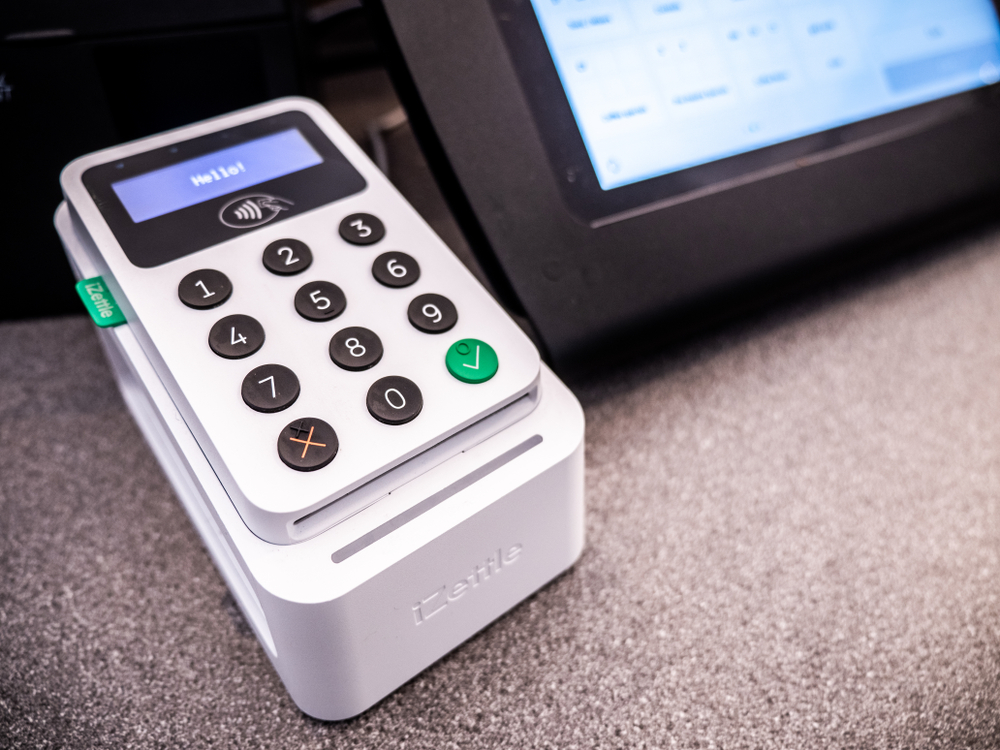What Is An EPOS System and How Do They Benefit Small Businesses?

Ever wondered how larger retail and fast-growing businesses manage their sales, inventory, and customer relationships so efficiently? Chances are they’re using an EPOS system.
That begs the question: what is an EPOS system?
EPOS stands for electronic point of sale and can significantly transform how you run your business. An EPOS system helps you track sales, update inventory, build customer profiles, and gain valuable insights into your business performance. If you still rely on old-school cash registers and paper records, it’s time to discover how an EPOS system can benefit your business.
So, what is an EPOS system? An EPOS System stands for Electronic Point Of Sale System, is a comprehensive solution that combines software and hardware components to effectively manage retail transactions. An EPOS system streamlines and automates your business operations by replacing traditional cash registers.
An EPOS system for retail shops lets you quickly process sales transactions, track inventory levels, and manage customer information in one integrated platform. The software enables you to generate detailed reports and gain valuable insights into your business performance, helping you make informed decisions to optimise profitability and customer satisfaction through the use of the latest available sale system technology. For more information, click here.
The Benefits Of An EPOS Machine
In addition to serving as a point of sale solution, an EPOS system often offers additional features such as employee management, customer loyalty programs, and integration with other business tools like accounting software and e-commerce platforms. This comprehensive functionality enhances your overall business operations and allows for better control and management of your retail establishment.
In summary, an EPOS system is a powerful tool transforming how businesses conduct retail transactions. By leveraging advanced software and hardware capabilities, it simplifies operations, provides valuable insights, and ultimately helps you deliver a more seamless and satisfying customer experience.
Key Hardware Components
The main EPOS hardware components are the cash registers where customers make their purchases. You’ll also need barcode scanners, receipt printers, and likely customer-facing card machines. For associates, wireless access points and handheld devices can be helpful in larger stores.
Best EPOS Software & Features
EPOS software, either installed on your registers, mobile devices or accessed through the cloud, provides vital tools, such as the following:
- Product and customer databases to store information
- Sales reporting to view best-selling products, trends and helpful analytics
- Inventory management to reorder stock and reduce waste
- Loyalty programs to reward repeat customers
- Integrations with accounting, e-commerce, and other business platforms
An EPOS solution is necessary for retail businesses to stay competitive. While the decision to invest in the required software and hardware may seem somewhat drastic, the long-term benefits to your bottom line and customer experience make it well worth the cost. Now you know what is an EPOS system, you’re starting to see how you’ll be poised for growth and success with the right system in place.
How Does an Epos System for Small Business Work
Tracking Sales
An EPOS system records each transaction in real time so you know exactly how much revenue you generate and which products sell the best. It can provide reports on sales by day, week, month or year to help you make better business decisions.
Managing Inventory
After each sale, the system automatically updates your inventory so you know when to reorder stock. It can also handle purchase orders to streamline the reordering process. Accurate inventory management means you’re less likely to run out of fast-moving items and lose potential sales.
Improving Efficiency
An EPOS system speeds up the checkout process so you can serve more customers in less time. It also reduces errors like overcharging or undercharging as items are scanned, and the prices are calculated automatically. Your staff can spend less time manually entering sales and more time helping customers.
Generating Insights
The data collected in your EPOS system provides insights into your business and customers. You can see which products are performing well, spot trends, and determine ways to improve sales. These insights allow you to optimise your product selection, promotions, and marketing to drive business growth.
Are POS Systems Worth It?
While the initial investment may give you pause, the long-term benefits to your retail business’ efficiency, productivity and bottom line far outweigh the costs. You’ll be poised for growth and success with an automated point of sale, streamlined inventory management, and data-driven insights into your business and customers.
To discover all the benefits of our EPOS System, visit our dedicated business service page.
Categories: Advice, Epos Systems
Tags: epos systems, epos systems quotes, epos till system, small businesses, till register



